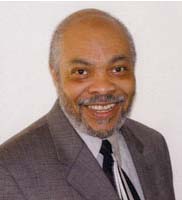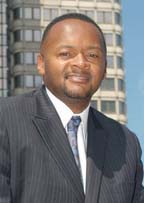November 10, 2010
 Bill Owens
Bill Owens Michael CurryBoston’s chapter of the National Association for the Advancement of Colored People (NAACP) Branch will hold elections later this month— and the contest between two men seeking to lead the group is increasingly viewed as a referendum on the group’s future.
Michael CurryBoston’s chapter of the National Association for the Advancement of Colored People (NAACP) Branch will hold elections later this month— and the contest between two men seeking to lead the group is increasingly viewed as a referendum on the group’s future.
Former State Senator Bill Owens and local attorney Michael Curry are both vying to succeed Karen Payne, who stepped down as president of the Boston chapter earlier this year to run for state representative. Members of the NAACP will vote in a secret ballot election on November 29 from 5-9 p.m. at Roxbury Community College. The two men will appear in a debate set for Nov. 22 at the Vine Street Community Center in Roxbury.
The Boston branch is nearing its centennial anniversary and is one of the oldest branches in the nation under the NAACP banner. But, critics say that the Boston chapter has gone “dormant” in recent years. They hope that under new leadership the organization can become relevant to a younger demographic and more influential on key issues impacting the city’s neighborhoods.
The election pits Owens, a 73 year-old veteran political figure against a well-networked and respected younger activist, Curry, 42. Observers say the outcome will set the tone for the chapter’s viability moving forward.
“There are a lot of things that the NAACP is involved in, but a lot of people don’t even know what the NAACP is doing in their communities,” said Supreme Richardson, a longtime member. “After this election, we will hopefully become more relevant to people. We are supposed to be that voice of the community.”
A resident of Mattapan, Owens ascended to the Massachusetts Senate in 1974 already having had a hand in prominent Civil Rights battles in Boston. Owens represents what some refer to as the “old guard,” the older generation of members who operated in and around the Civil rights movement.
“I was hesitant to run, at first,” said Owens. “I made the decision after several people called on me with concerns that the NAACP was not having as big of an impact as it could...This organization needs new leadership that is going to take a hard look at the issues and take action.”
Curry describes himself as a former “latch-key kid,” who grew up in Roxbury’s projects and encountered struggles that he attempts to address in the community by working with the NAACP. Curry, a lawyer, has private and non-profit sector experience and is presently the Legislative Affairs Director and Senior Counsel for the Massachusetts League of Community Health Centers.
“There is a generation of folks— 20’s 30’s and 40’s— that have a disconnection with the NAACP,” said Curry. “We have to rebuild that connection.”
Yet, both candidates and their allies maintain that race has not devolved into a battle between the Old Guard and the New Guard. Despite the thirty year age difference, the two candidates seem to agree on a lot. Both urge that the Boston NAACP needs a breath of fresh air, a stronger member base and greater visibility in the community. They differ slightly in how to go about achieving those goals.
Both Curry and Owens offer strategies that focus on engaging the youth and becoming more accessible in the community. Owens focuses on internal reforms of the NAACP, such as adding a legal services department, and reaching out to a diverse range of civic organizations outside of the black community.
“Many of these issues go beyond just the black population,” said Owens. “What happens to one community has an effect on others.”
Curry wants to broadcast community meetings and engage residents in the important discussions in their neighborhoods “on the street,” as he put it. He hopes that by including more community members, particularly youth, the NAACP will maintain an influential and relevant standing going forward.
“We need to make the case for the continued relevance of the NAACP,” said Curry. “We need to present the case for the remnants of race and racism in our society to the mothers, the fathers, the doctors, the lawyers...or the gangbangers, and say, ‘This is why we need you with us at the table to solve these problems.’”
Curry has been with the NAACP for 13 years continuously, which he says gives him further insight into the inner workings of the organization. Owens admits he has been a member of the NAACP sporadically for several years, but questions Curry’s ability, as a lobbyist, to confront lawmakers if necessary.
In any case, both parties have expressed a willingness to work together despite the outcome of the race. Other members agree that such a collaboration across the generational gap will be necessary if the NAACP branch wants a more influential role in the city’s civic dialogue.
“I don’t think the election has to do with Old Guard vs. New Guard,” said Marvin Venay, a NAACP member serving on the Election Supervisory Committee. “The organization seems to be somewhat dormant. The focus now is how to reinvigorate it so we can continue to serve the community.”
Villages:
Topics:
Tags:



